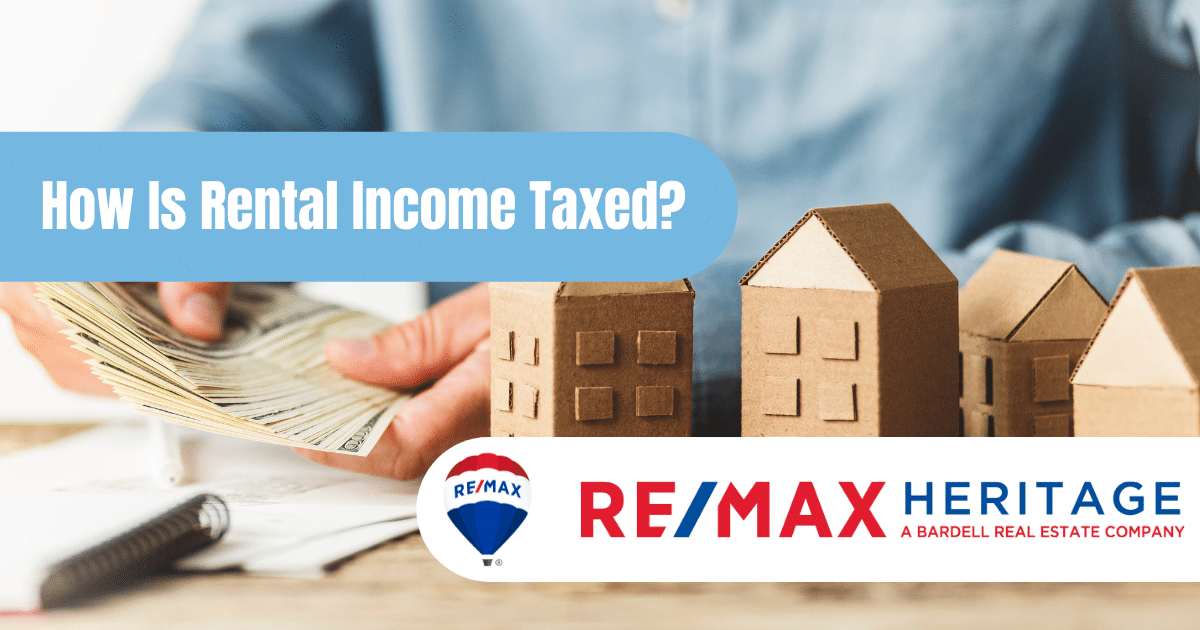How Is Rental Income Taxed?


How Is Rental Income Taxed?
Owning and overseeing a rental property presents an excellent opportunity to generate passive income through rental payments. However, it’s crucial to bear in mind that rental income is subject to taxation by the Internal Revenue Service (IRS), and landlords are obligated to report it in compliance with the new 1099 requirement.
To ensure you are well-prepared for the tax season, we will elucidate how rental income is taxed and provide you with best practices for effectively tracking this income.
What Is Rental Income?
What constitutes rental income? According to the IRS, rental income encompasses “any payment you receive for the use or occupation of a property.” This includes income derived from renting out your property to various tenants, whether they are travel nurses, conventional tenants, or individuals renting a single room.
Furthermore, there are other types of payments that are considered rental income:
- Advance rent: This refers to any amount received before the official lease term begins.
- Security deposits: If you plan on refunding the full security deposit amount to the tenant, you do not need to include it as rental income. However, if you retain a portion or the entire security deposit, you must report it. If the security deposit is used to cover unpaid rent, the IRS treats it as advance rent and requires it to be reported.
- Tenant-paid expenses: If tenants are responsible for paying expenses that you would normally cover, such as utilities (e.g., water and sewage bills), these payments are considered rental income.
- Property or services in lieu of rent: If you receive property or services instead of monetary rent, you must include the fair market value of the property or services in your rental income. For example, if a tenant offers to paint your rental property instead of paying two months’ rent, the value of the painting service would be included in your rental income.
It’s essential to keep track of all these different sources of rental income to ensure accurate reporting to the IRS.
How Rental Income Is Taxed
When it comes to rental income, the IRS wants landlords to report all of it on their tax return. There’s this new 1099 rule that kicks in, making landlords report rental income over $600 through non-employment channels. Oh, and remember, you gotta report the payments in the same year you receive them, even if your tenants credit them to a different year.
Now, the fun part is figuring out which tax forms to use as a landlord. Usually, you can rock the Schedule E (Form 1040) form to report income and expenses from your rental real estate. But hey, it can get a little trickier depending on the type of rental property, how long your tenants have been there, and if you’ve ever used it for personal stuff.
Oh, and keep in mind that the amount of tax you’ll owe on your rental income depends on which tax bracket you fall into. Don’t worry, though—those details are best shared by a tax pro who can hook you up with the scoop tailored to your situation.
Is Rental Income Taxed as Ordinary Income?
Rental income is subject to taxation as ordinary income. However, as a property owner, there are various deductions available that can help lower the taxable amount. These deductions encompass expenses such as mortgage interest, insurance premiums, utilities, Homeowner Association (HOA) fees, depreciation, repairs, renovations, and more. When it comes to filing your taxes, consulting an accountant can be beneficial in determining the deductions you qualify for based on your specific circumstances. They can assist in identifying eligible deductions and ensure you take full advantage of available tax benefits.
Can I Avoid Paying Taxes on Rental Income?
Nope, that’s not gonna happen. Reporting your rental income is a requirement by the IRS, so there’s no escaping it. But hey, here’s some good news: you can actually reduce the amount you owe by working with an accountant who knows their stuff. They’ll help you uncover the deductions and tax breaks you qualify for. It’s like finding hidden treasure for your wallet!
Now, here’s the deal: failing to report your rental income can lead to accuracy-related penalties, criminal charges, and tax fraud accusations. Yeah, not a pleasant situation to be in. So, it’s important to establish a process to keep track of your rental income, maintain a record of property-related expenses for deductions, and get ready for tax season in advance. Stay on top of things, my friend!
And remember, there are various tools and resources out there to simplify your life. They can help you track your payments considered as rental income and even manage maintenance costs if you log them appropriately. Embrace the convenience!
Looking for rental services in Orlando – we can help.
We work with our Owners and tenants as individuals and never under estimate what it takes to keep you happy with your choice of Management Company.
By doing our due diligence with our clients, tenants, and vendors we create a service that exceeds expectations and generates positive referrals. Click HERE to learn more and how one of our property management professionals can help you!
Ready to make a Move?
Bardell Real Estate are the experts in helping you with your selling, buying or renting needs near Orlando, Florida. Make your Disney area experience a forever memorable one. Call us now to speak to a real estate agent.
